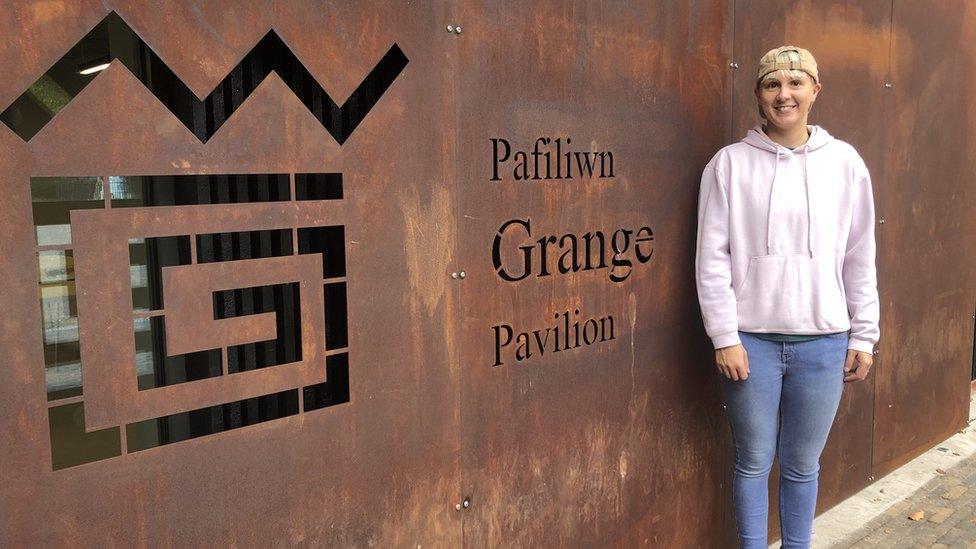Covid: Worries about parents' drug and alcohol use soar
- Published
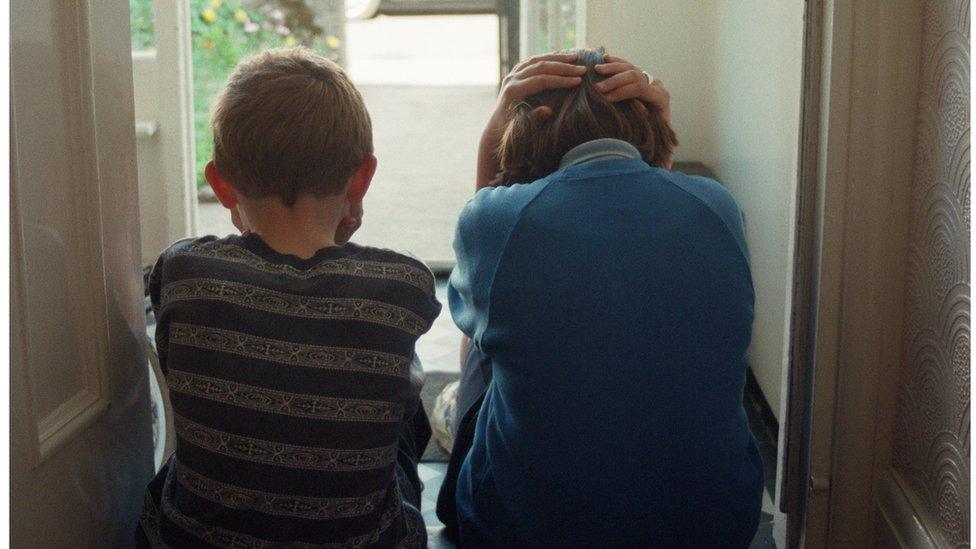
The number of NSPCC referrals about parents' substance misuse has increased by 70%
There has been a dramatic rise in the number of children needing help because their parents are misusing drugs and alcohol, a charity says.
NSPCC Wales have made 572 substance misuse referrals to police and agencies in the past 10 months - a rise of 72% since the pandemic began.
One woman whose mother drank heavily said school was her escape, but children are now "stuck at home".
The Welsh Government said it invests £54m in substance misuse services.
Of that, £2.75m is ring-fenced for children and families.
Ashley, from Denbighshire, said she felt "trapped" in her own home growing up because her mother was addicted to alcohol.
"My mum used to drink every day as far back as I can remember," Ashley, now 25, said.
"Her drinking meant that I had to be the mum to my siblings and I didn't really have a life... My only escape from this was school.
"I didn't speak to anyone about what was going on at home because I didn't realise it was wrong. That was just my life and I thought it was normal.
"My heart breaks for the children out there that are currently going through this and have no outlet, stuck at home surrounded by alcohol abuse with no escape."
The NSPCC is calling on the government, health boards and councils to ensure substance misuse services continue throughout the pandemic.
Average monthly referrals are 72% higher than in the first three months of 2020, the charity said, and called for a Covid recovery strategy to support children and young people who have experienced trauma.

The NSPCC can make referrals to police and other agencies to help children at risk of abuse or neglect
Kam Thandi, head of NSPCC Helpline, said: "The Covid-19 pandemic and subsequent lockdowns have created a perfect storm for families affected by this problem.
"We've not only seen a rise in contacts and referrals but we're also seeing families who weren't previously known to children's services requiring help and support for substance misuse.
"The pressures on families at the moment are unprecedented and it is no surprise that our helpline is hearing that parents and carers are struggling with substance misuse."
Living in a house where a parent of carer is misusing substances does not necessarily mean children will encounter abuse, but the NSPCC said it made it more difficult for those looking after children to provide safe and consistent care.
Deaths caused by alcohol in Wales and England hit a new high during the first nine months of 2020, with provisional official figures showing 5,460 deaths registered with this cause between January and September - the biggest toll recorded since records began in 2001.
'You're going to have a drink if you have alcohol in the house'
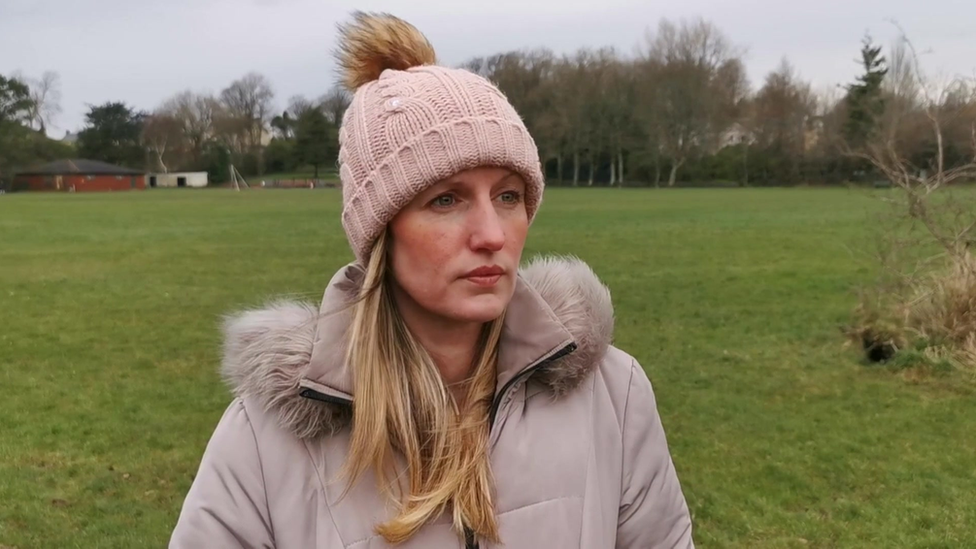
Rhian Williams works with women who are cutting down or stopping drinking
Rhian Williams, 36, from Swansea, is coming up to a year of sobriety after what she described as "15 years of worshipping wine".
She says she drank almost every night of the week and it affected her relationship with her husband Chris.
Ms Williams now works as a counsellor with women who have cut down or given up drinking alcohol.
"It's been an incredibly difficult time for everyone, you're in the house... what are you going to do?," she said.
"You're going to have a drink if you have alcohol in the house, I know I would have done that, that would have been my go-to and that's the problem.
"It's been sold to us as something to relax us and is the answer to our stressful situation, unfortunately it's not, but the more we do it, the more our body learns that's what we want to do and that's sadly how we can become dependent and get into more addictive behaviours."
A Welsh Government spokesman said: "We are extremely concerned about some of the issues which have been raised in this report and the vulnerability of some of our children.
"At an early point in the pandemic response we sought reassurance that support for families and children was kept in place."

Covid-19 and mental health
The pandemic has had a huge impact on people's day-to-day lives in Wales, with mental health problems worsening across different age groups in the past year.
In adults, the proportion of individuals showing symptoms of depression, external has almost doubled since the start of the pandemic, the Office for National Statistics says.
And Covid-19 has had a "crushing impact" on the lives of children and young people, according to the Children's Commissioner for Wales.
Have you or a loved one suffered a mental health problem during the pandemic? Or have the circumstances helped you to address an issue?
Use this form to send us your stories and experiences.
Please note, we will contact you before publishing anything you provide and the contact details you include will never be published. Please read our terms & conditions and privacy policy.
If you are reading this page on the BBC News app, you will need to visit the mobile version of the BBC website to submit your question on this topic.
- Published18 December 2020

- Published9 November 2020
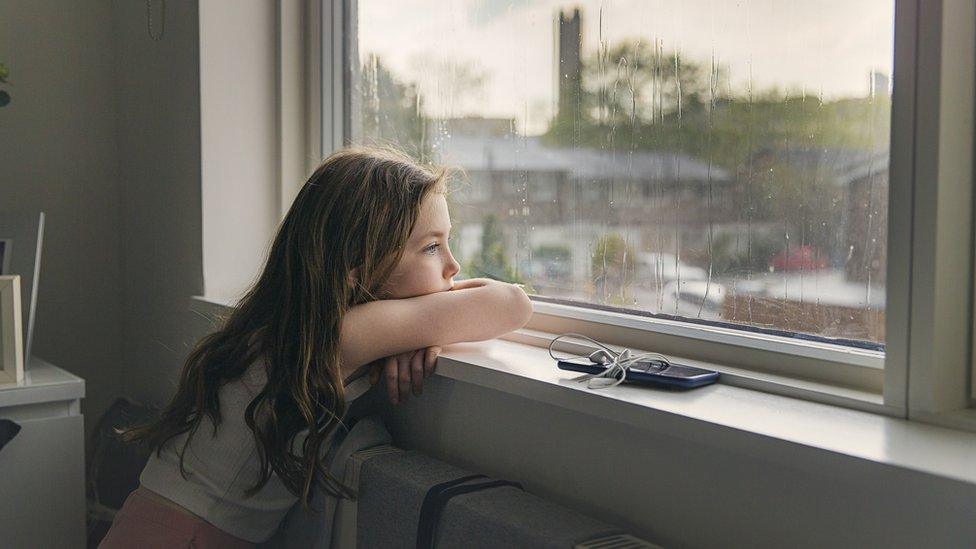
- Published2 December 2020
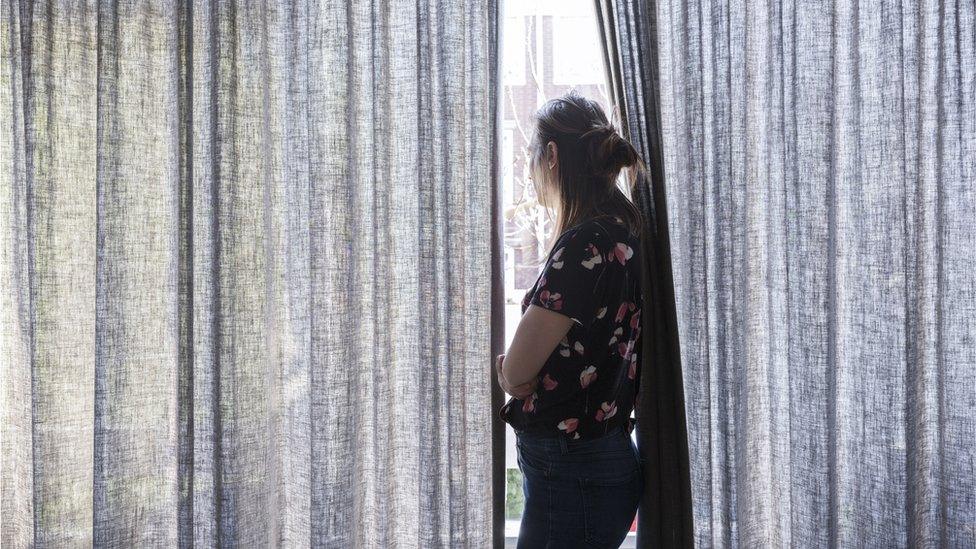
- Published3 November 2020
